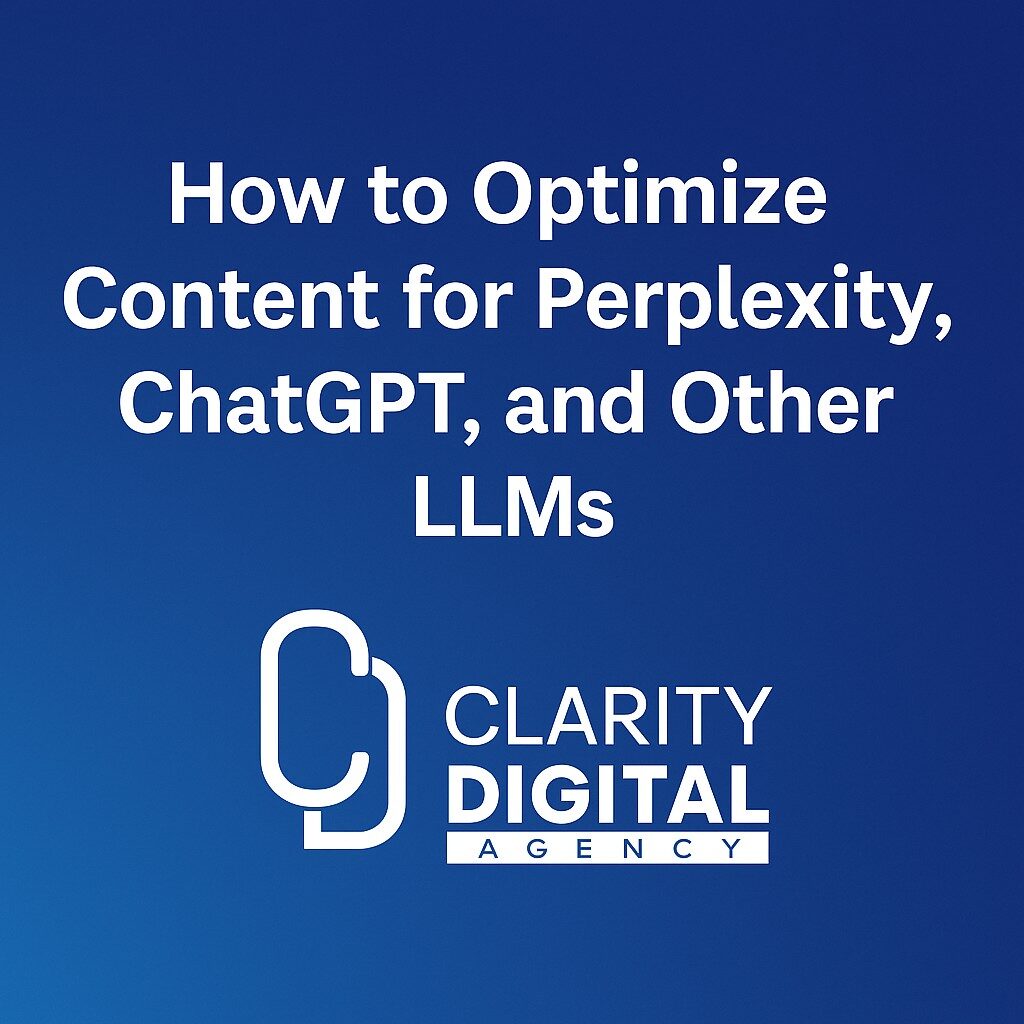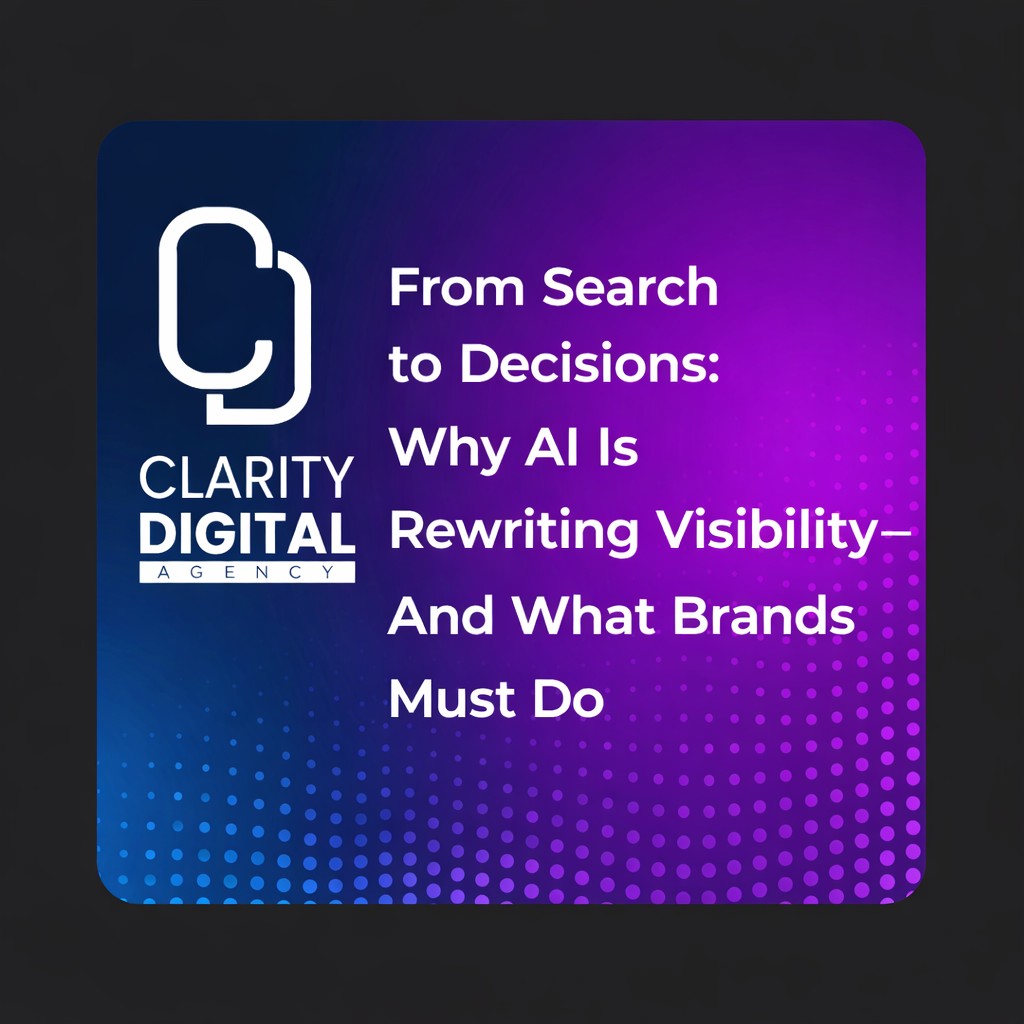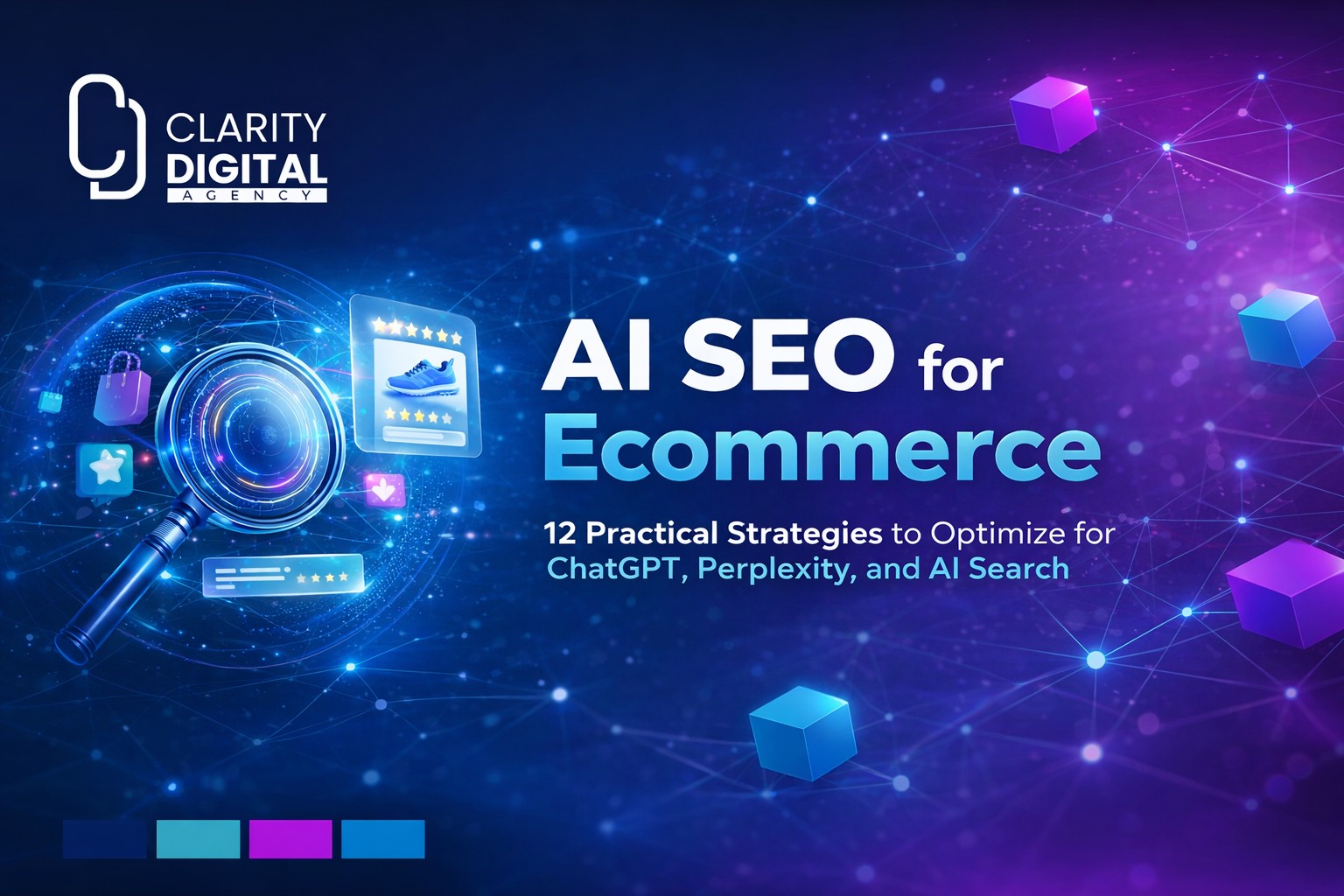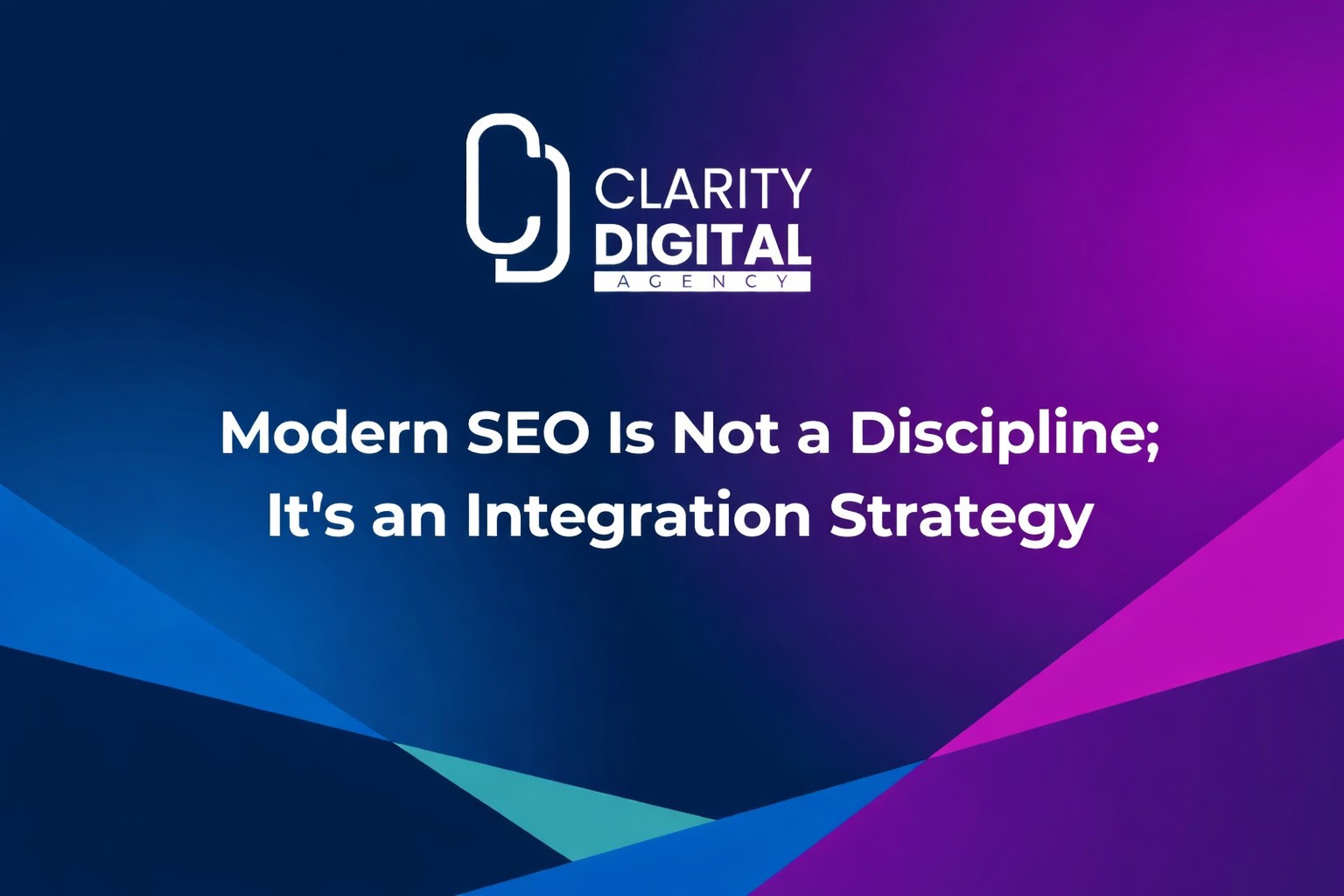As large language models (LLMs) like Perplexity AI, ChatGPT, Claude, and Gemini change how people search, the way content is discovered, cited, and trusted is evolving fast. Visibility isn’t just about ranking on Google anymore—it’s about being sourced and referenced directly by intelligent answer engines powered by generative AI.
At Clarity Digital Agency, we’ve been helping businesses in Orange County and across the U.S. adapt their SEO and content strategies for this new environment. Whether you’re a SaaS company, ecommerce brand, or B2B organization, optimizing content for LLMs is no longer optional—it’s strategic.
To stand out in a world where AI summarizes the web for users, your content must be designed not only for human readers but also for how large language models parse, evaluate, and surface information. Here’s how to optimize content that earns visibility across AI-powered search engines.
Start with Clear, Direct Answers
LLM-driven tools prioritize content that offers instant clarity. Open your content with a direct, concise answer to the primary question users are likely asking. Use natural, conversational phrasing that reflects how people search—full questions, not robotic phrases. Think about the likely follow-up questions and address them logically within the same piece. This builds topical completeness and improves the odds of being selected as a cited source in AI-generated responses.
Structure for Machine Parsing and Human Skimming
Content that lacks structure is unlikely to be understood by AI systems or retained by readers. Use consistent and clear subheadings that reflect the content hierarchy. Break down complex ideas into bullet points or numbered lists when possible. Prioritize the most important information early using the inverted pyramid structure. LLMs and Google both use structure to determine what content is about, how it’s organized, and whether it can answer a user’s query fully and efficiently.
Demonstrate Expertise, Authority, and Trust
Trustworthy, expert-level content is more likely to be cited by generative engines. Write with factual precision and reference credible sources. Avoid over-promising or using vague, promotional language. Maintain an objective tone that signals authority rather than opinion. In an AI-first search landscape, your reputation and subject-matter depth matter more than ever. Publish content that not only informs but signals that your brand is an authoritative voice in its field.
Use Multimedia Thoughtfully
Well-placed visual elements strengthen comprehension and improve your content’s usefulness to both human readers and AI. Add visual aids—charts, diagrams, infographics—when they clarify complex points. Always use descriptive captions and alt text so that LLMs can understand what is being depicted. If you include video or audio, make sure to provide transcripts. This creates additional textual content for LLMs to parse and increases the likelihood of your content being referenced in voice-activated or multimodal search.
Include Q&A and FAQ Sections
Q&A formatting aligns perfectly with how users interact with AI systems. Generative engines often prioritize well-formatted question-and-answer content. Include a section with commonly asked questions related to the page’s topic. Phrase them the way real users speak or search. Keep answers under 100 words and deliver factual, direct responses. This format is highly indexable and often gets lifted into AI-generated summaries.
Keep Content Fresh and Factually Current
Generative AI tools reward recency and penalize outdated or static content. Review and refresh your key pages regularly—especially those discussing fast-evolving topics like technology, tools, regulations, or trends. Remove outdated stats, update broken links, and replace or revise older examples. Indicate the last updated date in your metadata or on-page to provide transparency and trust. Regular updates not only benefit AI citations but also improve long-term ranking in traditional organic search.
Prioritize Clarity and Simplicity
AI models favor text that is predictable and easy to process. Avoid jargon unless it is widely recognized by your audience, and define any specialized terms when needed. Write in short paragraphs using plain, natural English. Aim for an eighth to tenth-grade reading level where possible. Tools like Hemingway or Grammarly can help—but a simple read-aloud test works just as well. If it sounds natural, it’s likely readable by a machine-learning model as well.
Why This Works: Understanding “Perplexity” in AI
In natural language processing, “perplexity” measures how well an AI model predicts the next word in a sentence. The lower the perplexity score, the more confident the model is in its predictions. That’s why writing with plain, structured, and simple language increases your chances of being selected by LLMs. It’s not just about using keywords—it’s about predictability, clarity, and usefulness. Optimizing for AI search means writing for the way machines read and evaluate content, not just how humans consume it.
AI SEO Optimization Checklist
Start with a direct answer. Use natural language that reflects how people actually search. Structure your content clearly with headings, lists, and hierarchy. Add visuals with descriptive alt text. Include real FAQ and Q&A sections. Keep the content current with regular updates. Prioritize clarity and readability. Cite reputable sources. Focus on answering the user’s intent—not just matching keywords.
Frequently Asked Questions About LLM Search Optimization
What is Perplexity AI and how is it different from Google?
Perplexity AI is an answer engine that uses large language models to provide cited responses pulled directly from online content. Unlike Google, which returns ranked lists of links, Perplexity delivers summarized answers with live citations.
How do I get my content cited by Perplexity or ChatGPT?
Structure your content with clear headings and use natural phrasing. Answer real user questions and keep your information current. AI systems are more likely to cite content that is trustworthy, factual, and formatted for readability.
Does optimizing for Perplexity AI also help with traditional SEO?
Yes. The principles that improve visibility in LLMs—such as structure, clarity, and authority—also benefit your rankings in Google. As Google rolls out more AI-generated results through its Search Generative Experience (SGE), these tactics will overlap even more.
Is optimizing for ChatGPT the same as optimizing for Perplexity AI?
They are similar but not identical. Perplexity AI cites live web sources, so crawlability and formatting matter more. ChatGPT may synthesize responses from its training data without citations. Optimizing for both starts with clear, helpful content that answers user needs.
How often should I update content for AI SEO?
Review high-performing or strategic content at least quarterly. Update stats, refresh visuals, and revise outdated sections to keep your content accurate and relevant to changing queries and AI trends.
Why does simple language help with LLM optimization?
Straightforward language reduces ambiguity and improves the model’s ability to confidently predict content. This increases the chance of your content being cited in a generative answer and lowers the risk of misinterpretation.
Do backlinks still help with AI visibility?
Yes. Backlinks from high-authority domains still build trust and influence AI models’ evaluations of your content. They remain a key signal for both traditional and generative search.
Do unlinked brand mentions matter?
Absolutely. Brand mentions in articles, social media, or forums—even without hyperlinks—can influence an AI model’s understanding of your authority and topical relevance.
Does social media engagement influence AI content visibility?
Yes. Activity on social platforms increases reach and engagement, which boosts the likelihood of your content being referenced or learned by AI systems.
Can user-generated content and reviews help?
Yes. AI models often pull from forums, review platforms, and Q&A sites. Mentions of your brand or product in third-party spaces can improve visibility and influence in generative search results.
Do videos or podcasts improve optimization?
They can, especially if supported by transcripts, descriptions, and metadata. These formats give LLMs more context and content to evaluate and reference.
How important is being recognized as an authority in my field?
Extremely. The more consistently you’re referenced across reputable platforms, the more likely it is that AI systems will trust and cite your content. Authority builds both brand visibility and long-term SEO performance.
Should I be listed in online directories or local citations?
Yes. For local or specialized searches, citations in business directories and structured listings help reinforce your presence and boost local discoverability.
Does PR help with AI visibility?
Only digital PR helps directly. Online coverage—articles, blogs, interviews, press releases—creates signals that AI engines can crawl and evaluate. Traditional PR, like radio or print, has no effect unless it results in digital coverage that can be indexed.
Adapting Your SEO Strategy for AI Search
AI-powered search is already reshaping how users find and engage with information. If your content isn’t optimized for Perplexity AI, ChatGPT, Gemini, and other LLMs, you’re missing opportunities to be part of that discovery process.
At Clarity Digital, we help brands reframe their content strategies for this AI-first world. From content audits to LLM optimization frameworks and AI-driven SEO campaigns, we deliver clarity, structure, and visibility. Based in Irvine, California, we serve clients across the U.S., helping SaaS, ecommerce, and B2B companies stay ahead of the curve.
Looking for an AI SEO agency? You’ve found it. Let’s talk.





